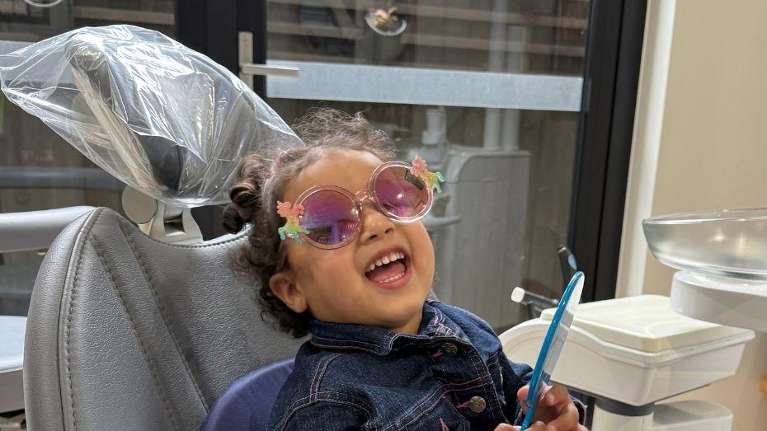
When I was a child, I dreaded going to the dentist. The unfamiliar smells, the strange noises, and the fear of the unknown made every visit overwhelming. That anxiety stayed with me for years, but it also inspired me. Today, I work as an Oral Health Therapist, helping children overcome the very fears I once struggled with.
One of the most rewarding parts of my job is helping children feel safe, confident and even excited about their dental visits. But I know for many families, a trip to the dentist can feel overwhelming, especially if their child experiences dental anxiety.
Dental fear in children is more common than you think.
Whether it stems from previous negative experiences, fear of the unknown, or even stories they've heard from siblings or friends, these anxieties are valid and manageable. With the right strategies, we can create positive, empowering dental visits that set kids up for a lifetime of good oral health.
Here are some of my favourite ways to ease children's dental anxiety and how you as a parent or caregiver can help.
-
Start early: Introduce your child to the dental environment early; Ideally by their first birthday or when their first tooth erupts. Early visits create familiarity and allow for trust to develop before any treatment is required.
-
Use child friendly language: Avoid using terms like “hurt”, “needle” or “pull”. Instead use child-friendly language like “cleaning your smile”, “sleepy juice” ( for anaesthetic) or “tooth counter”. Use language they can understand that won't incite fear.
-
Show,Tell, Do : This is a cornerstone of pediatric dentistry
-
Tell the child what we're going to do
-
Show them the tools in a non-threatening way
-
Do the procedure gently and calmly
This step-by-step process reduces anxiety and fear by building trust and predictability.
-
Parental involvement : Your child will take cues from you, if you're relaxed and speak positively about dental visits, your child is more likely to follow your lead. Offer gentle words of encouragement, celebrate their bravery, and avoid showing any anxiety you might feel yourself.
-
Behaviour management techniques: In more anxious or neurodiverse children, we may use techniques like desensitisation, breathing techniques and/or rewards as positive reinforcement. In some cases we may refer children to specialists to provide care.
If your child feels nervous or anxious about seeing the dentist, you're not alone. Our goal is not just to check teeth; it's to create a safe, supportive environment where children feel heard, respected and cared for.
Dental care should not be a traumatic experience. With the right approach, empathy and patience, we can ensure every child receives the treatment they need without fear or distress.
